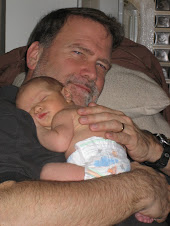(The following was a pastoral letter to the congregation I serve seeking to address the thorny issue of musical preferences in a worship time. Since it is an issue many churches, pastors, and believers deal with, I am posting it here)
There is hardly a week that goes by that someone does not communicate to one of our worship leaders or me that they “miss” the old hymns, and wish we would sing them more. Some have been kind about it, a few have not. Those in the second category often dismiss our newer songs as trite, or repetitive. I think triteness is in the ear of the hearer (“trite” means stale, corny, commonplace, tired, banal, or unoriginal—hard qualities to judge objectively). Repetition is no sin—in fact, the psalms give us quite a few repeated phrases, and no one faults Handel for too many “Hallelujah”s in his chorus. Close scrutiny of our choruses finds many pulling their texts directly from Scripture. Someone complained that no one knows the new songs (which is what makes them “new”).
As one who has been raised in churches where the hymnal was second only to the Bible in usage, I understand why those of us who enjoy hymns miss them. I cannot present my complete perspective on music as a component of corporate worship here, but let me put a few thoughts out there to explain the reasons behind our choices in music.
1. Each service where we sing will seek to have music that appeals to the broadest spectrum present. On Sunday mornings, we have more new believers, younger people, students, and others who appreciate a wide range of styles and often prefer contemporary forms. This means we will be wide in our variety on Sunday mornings, so that as many as possible can find something that assists them best in praising God. Of course all of us should be more concerned about others in corporate worship than ourselves, so this is no problem, right?
2. Those who attend on Sunday nights find greater representation of traditional music, and on Wednesday nights, hymns are the staple form in our prayer service, while our youth programs use contemporary music. Plenty of hymns are available for those who want to find them in those first two settings. Even on Sunday mornings, songs that represent our heritage of music in worship are still present when the choir sings, when we sing older words with newer musical settings, and when the orchestra plays.
3. Let’s remember that Isaac Watts was considered dangerous in his day for introducing a contemporary style of music to the church—hymns based on scriptural truth, rather than just singing psalms. Martin Luther was criticized for using common-sounding melodies and singable lyrics for such scandalous songs as “A Mighty Fortress Is Our God.” The gospel tunes of the nineteenth and early twentieth centuries were attacked for sounding worldly. A church that tells the generation growing to maturity that it had better not try to change the old ways of doing things will join the growing number of dwindling congregations rattling around in nearly empty sanctuaries, while younger saints create congregations where they can praise God with all their might. Watts’ (and then Wesley’s, and then others’) hymnal replaced the Psalter, which had replaced chants, which had replaced earlier forms of musical expression. Some of each have continued with succeeding generations, but most songs of each era passed away with the people of that time. There is nothing wrong with this, as long as the truth is what is being sung.
4. The next time we’re singing a new song that might or might not minister to you in its style, focus on the words that are being sung. Consider the truth that we are together proclaiming about the Lord to each other, or to Him in praise. It is the content that should take precedence, and does in our planning. Many contemporary songs (and more than a few old ones) have some great music with unscriptural or doctrinally incorrect messages. We do our best to make sure that the words we sing communicate truth we would say without instruments.
5. Having been in many worship services in other countries, I have often listened as people sang in another language a song I did not recognize. I really could not join in at all. Not only the words, but often the rhythms and cadences were just strange to me. Yet, I could worship and praise God. I could let the joy in the music and singing encourage me to rejoice in my God. I could thank God that I was with people who loved Him and wanted to sing to Him. I could thank Him for the privilege of participating with these dear people in worshiping Him. It would obviously have been very selfish for me to say, “Wait a minute! I’m here! Sing something I like and can sing!” So, when I hear someone say, “I just can’t worship with that kind of music,” I am saddened because it means that someone can’t find joy in being with others who love and seek God just because they prefer different worship songs. I hope that we all can avoid such thinking.
There is so much more I could say, but these letters are not meant to be books. I want you to know that I love you as your Pastor, and that if anything I say seems harsh, please understand that I only want to protect us from the harm the evil one wants to do by getting us to focus on ourselves, our preferences, our traditions, and our comfort instead of on our Lord Jesus Christ and then our neighbors. Let’s keep growing!
Thursday, December 21, 2006
Subscribe to:
Post Comments (Atom)





No comments:
Post a Comment